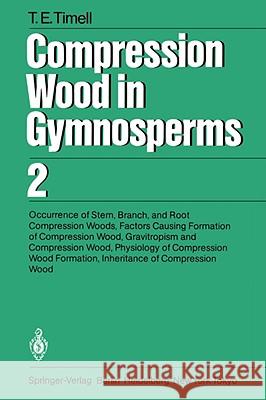Compression Wood in Gymnosperms » książka
Compression Wood in Gymnosperms
ISBN-13: 9783540157151 / Angielski / Twarda / 1986 / 625 str.
Felix qui potuit rerum cognoscere causas. Pub/ius Vergilius Mara Forests have long been one of mankind's most important natural re- sources and not the least because forests are, if properly managed, re- newable. They serve us in many different ways, but above all in pro- viding us with wood, one of the most remarkable and useful of all natural materials. Reaction wood, compression wood in gymnosperms and tension wood in the arboreal angiosperms, serves the function of making it possible for trees to perform movements. In the ancient Ginkgo and in the conifers, the ability to form compression wood is of vital importance to each and every tree. Compression wood plays a crucial role in the regulation of tree form in these gymnosperms, and their arborescent habit probably depends on their ability to develop this tissue. Few forest and plantation trees are devoid of compression wood in their stem, and all of them have it in their branches. Unfortu- nately, what is necessary and beneficial for the tree in this case is harmful to mankind, for compression wood is a very serious defect in both sawtimber and pulpwood. It is now almost 20 years since the last complete survey of compres- sion wood was published, namely Arthur H. Westing's excellent review of this subject. My major objective in writing the present book has been to bring together in one single work everything that is currently known about compression wood.











